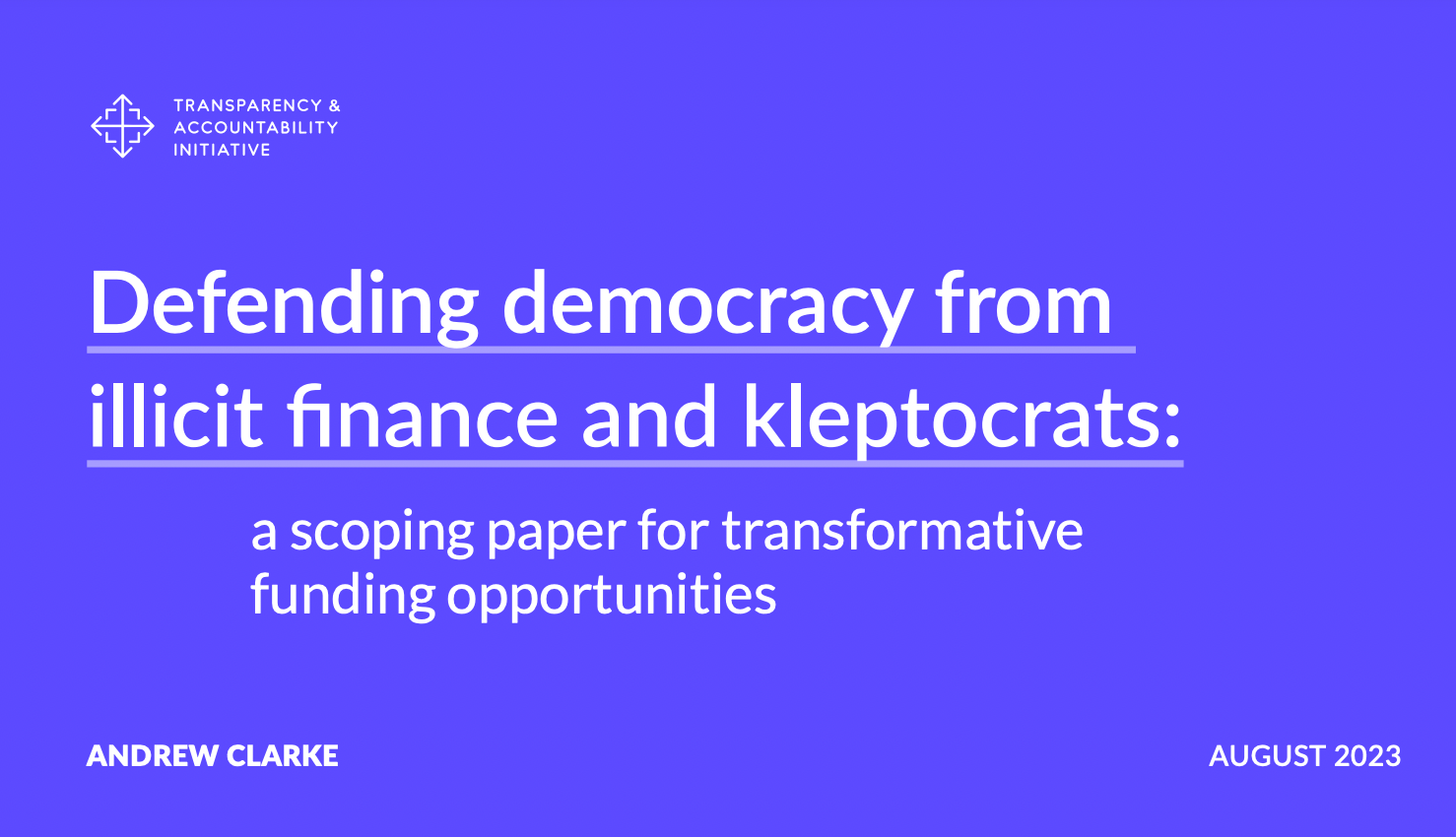A scoping paper for transformative funding opportunities
This paper was written by Andrew Clarke with the support of the TAI Secretariat.
Most authoritarian governments are integrated into – and benefit from – a global system of finance, influence and economic interests. The most venal and greedy are often termed “kleptocrats”, driven primarily by a desire to accumulate wealth for themselves and their cronies by any means, regardless of the cost to their compatriots. This behaviour is sustained and enabled by a complex, global system that operates across established democracies, countries in transition and failed states, through a web of illicit finance and opaque services. Whilst media attention and political commentary focuses on the “kleptocracies”, the collusion and negligence of political and economic elites in democracies in Europe and North America are core to how this system operates.
It is hard to measure the scale of the problem; the Economist’s “Crony-Capitalism Index” puts it at around $3 trillion, or nearly 3% of global GDP, with Russia topping the list. 1 But illicit finance does not just provide financial benefits – it also emboldens kleptocrats and entrenches their power and influence at home and abroad. Illicit finance – primarily “dirty money” – is also being deployed more broadly by authoritarian regimes and anti-democratic institutions to undermine democracies and progressive rights agendas (e.g., funding antigender, anti-LGBTQ+, anti-human rights movements).
Dirty money derives from a host of activities, including drug and human trafficking, mining, smuggling, bribes, rent extraction and tax fraud. These funds are then transferred, laundered and invested by a complex network of banks, wealth managers, lawyers, intermediaries and advisers via offshore companies, trusts and a range of assets. Laundered funds are then used to entrench, enrich and influence, spent on everything from political donations to yachts. Collectively, these facilities and channels for financial secrecy aid kleptocrats and other non-democratic actors (including authoritarian and totalitarian regimes) in pursuing wealth and power with impunity.
Grand corruption, theft of state assets and opaque stringpulling are not new phenomena. However, the growth of nebulous cross-border connections in a globalised and digitized world have altered how bad actors secure and defend the spoils of corrupt practices and use them to entrench their positions. Kleptocrats have also benefitted from the transnational service sectors that grew to support the complex operations of multinational companies, blurring the lines between legal and illegal activities.
Targeting these services and financial secrecy is critical for accountability and equitable development. Solutions need to tackle:
The transnational nature of the problem;
A mix of financial and non-financial services;
The spectrum from illegal to negligent or amoral behaviour.
This paper takes stock of current opportunities and obstacles, and explores approaches that promise the greatest impact. It provides a survey of some of the leading advocates and watchdogs in the space, and outlines possible avenues for strategic engagement.
